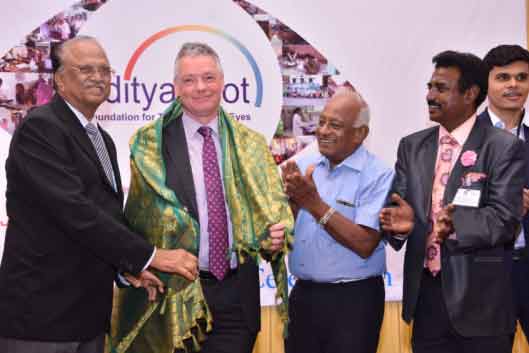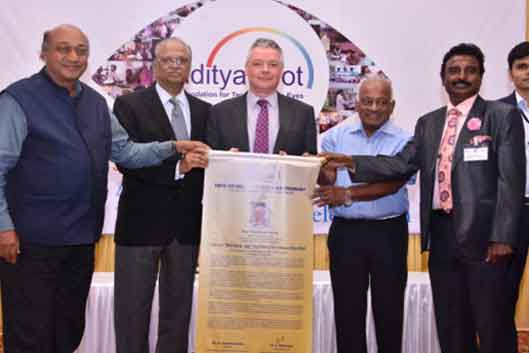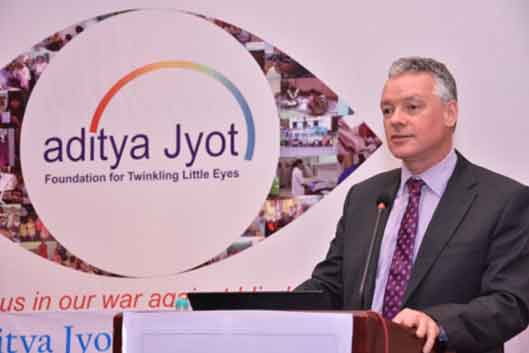Aditya Jyot Research in Vision and Ophthalmology, R and D unit of Kamala Sundaram Foundation for Twinkling Little Eyes
AJRVO is recognized by the Indian Government’s Department of Scientific and Industrial Research (DSIR) as a Scientific and Industrial Research Organization (SIRO).

Vision
Our vision is to establish cutting edge research and technology to understand the bio-mechanism of eye diseases and to discover novel therapeutic approaches including gene therapy, regenerative medicine

Objective
With our ophthalmic clinical expertise, we can translate research to better therapies for human eye conditions.
Research Area
Diabetic Retinopathy
Age related Macular Degeneration
Inherited Eye Disorders
Cataract
Paediatric Eye Diseases
Glaucoma
Research Theme
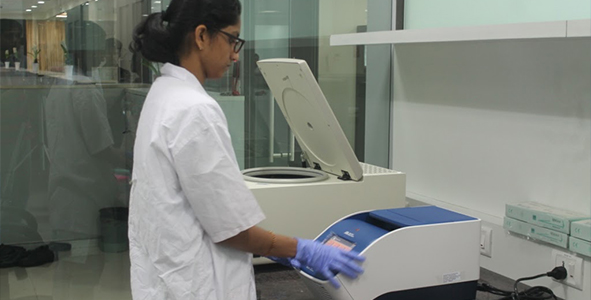
Genetic Research
We are working in basic and transnational research to develop novel therapies, application of gene therapy and cell therapy in ophthalmology.
We have started basic genetic research lab and Genetic Clinic. Through which we can provide patients personalized counseling and can focus on the molecular basis of diseases.
Our major focus is to study genomics and proteomics of diabetic retinopathy, age related macular degeneration, glaucoma, cataract, myopia and inherited eye diseases.
We are equipped with basic genetic research facility.

Regenerative Medicine
Gene therapy and stem cell therapy are overlapping areas of biomedical research with similar therapeutic goals. In stem cell therapy, whole cells are infused or transplanted into a patient for the treatment of inherited and acquired diseases. The eye is considered an immune-privileged site, in that cells implanted there are less likely to be rejected than they might be in other parts of the body. Research Focus Age-Related Macular Degeneration
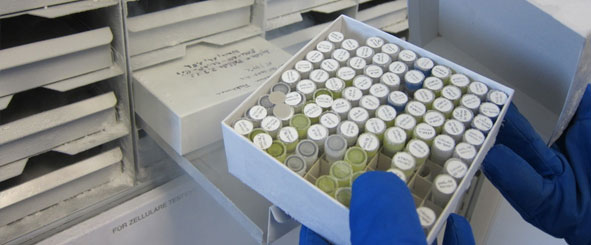
Bio-Banking
The purpose of the biobank is to collect and store human samples and clinical information. The stored samples will then be used by researcher in future studies.

Indian Ophthalmic Image Reading Centre
The mission of this centre is to advance the development of ophthalmic image interpretation and its role in advancing the understanding of treatments for preventing blindness through collaborative clinical research.
AJFTLE can provide primary eye care services through reading center for improving eye care delivery in the country and enhancing access to services in difficult to reach areas and rural, urban slums of India.
Key Features of This Model:
- Linkage between hospitals: Tele-link
- Centralized reading center for FP, OCT, FFA
- Creating awareness regarding eye related disorders and primary eye care

Epidemiological Studies
Epidemiological studies are used to plan and evaluate strategies to prevent illness and as a guide to the management of patients in whom disease hazel ready developed. It is the cornerstone of public health and shapes policy decisions and evidence-based practice by identifying risk factors for disease and targets for preventive health care.
Aim/Goal
To provide comprehensive ocular medicare benefits to underserved population for various ocular diseases.
Objectives
- To create awareness about different blinding conditions and provide service via a pocket based approach in slums of all the wards of Mumbai.
- To provide comprehensive ocular examination services and if disease condition is diagnosed then to provide appropriate eye care.
- To evaluate the prevalence of diabetes and its influence in different blinding conditions.
- To identify socio-economic status and other (health) risk factors associated with different blinding conditions
- To understand the biology of disease mechanisms.
- To create a genetic database to be utilized for designing diagnostic panel for early prediction of disease manifestation
Aditya Jyot Dr. A. P. J Abdul Kalam Oration Award - Prof Takeshi Iwata
Kamala Sundaram Foundation for Twinkling Little Eyes started Dr. A. P. J Abdul Kalam Oration Award for researchers and clinicians in the field of ophthalmology.
First Aditya Jyot Dr. A. P. J Abdul Kalam Oration Award was bestowed to Dr.Takeshi Iwata for his contribution in ophthalmic genetic research.
Dr.Takeshi Iwata’s research focuses on retinal diseases, age-related macular degeneration, glaucoma and hereditary retinal diseases to identify the cause and explore the molecular mechanism of the disease onset.
His laboratory is responsible for two large consortiums based In Japan and Asia. The Japan Whole Exome Consortium for Hereditary Retinal Disease focuses on 36 inherited retinal disease to identify the disease-causing mutations in Japanese population with over 30 university ophthalmology departments being involved in the consortium.
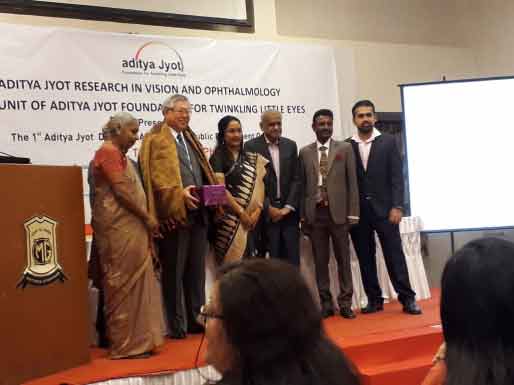
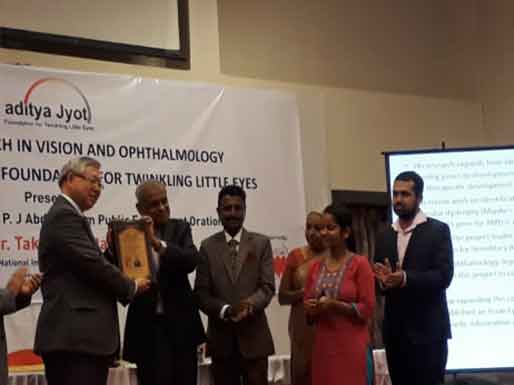
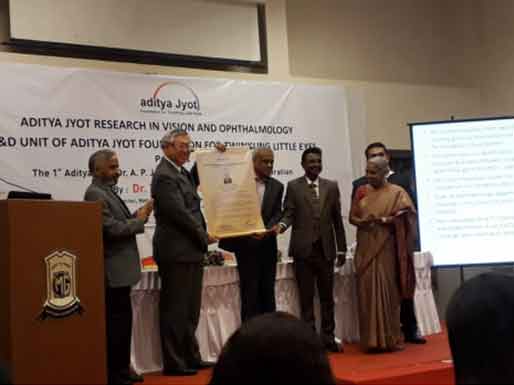
Aditya Jyot Dr. A. P. J Abdul Kalam Oration Award – Prof Pang Chi Pui Calvin
Prof Pang Chi Pui Calvin was conferred 2nd Aditya Jyot Dr. A. P. J Abdul Kalam Oration Award by Kamala Sundaram Foundation for Twinkling Little Eyes.
Prof PANG Chi Pui Calvin received a BSc (Hon) in Biochemistry in 1978, University of London, and DPhil in 1982, University of Oxford, on an EP Abraham Research Fund Scholarship, followed by postdoctoral research in Oxford.
Prof Pang was appointed Lecturer in Chemical Pathology at the Chinese University of Hong Kong (CUHK). Prof Pang is also advisor to Hong Kong Eye Hospital, Prince of Wales Hospital, Shatin Hospital, Alice Ho Nethersole Hospital and North District Hospital, Hong Kong.
He gave his oration lecture on “Children Eye Care – A deserving eye care for our next generation”
He was very enthusiastic to collaborate with Aditya Jyot to do research in Pediatric Eye diseases.
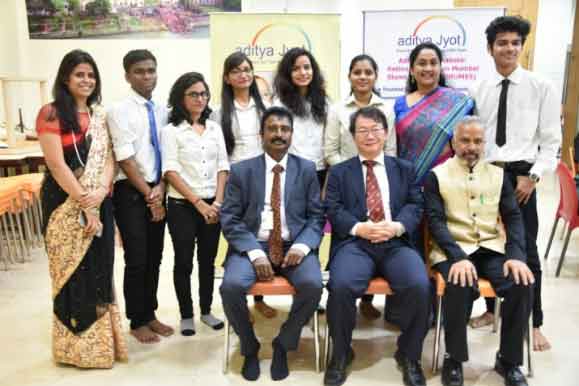
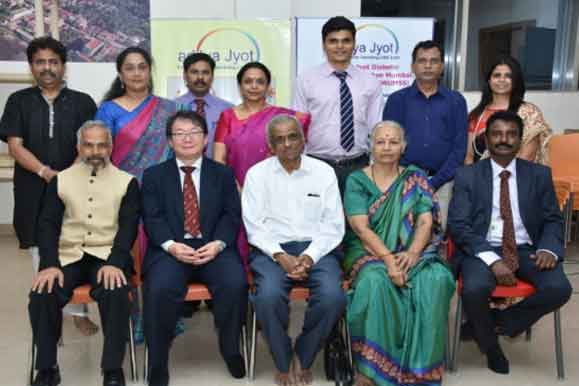
Dr.A.P.J. Abdul Kalam Oration Award – Prof. Dr. Paul Baird
Prof. Dr. Paul Baird, Head, Center for Eye Research, University of Melbourne, Australia was honored by Trustees and luminaries with Dr. A.P.J. Abdul Kalam Oration Award for his outstanding contribution to Age-related Macular Degeneration Research.
He began his research career in the UK after his PhD studies at the University of London, working in the field of cancer genetics. Following senior research positions at the Hanson Centre, Adelaide and the Walter & Eliza Hall Institute in Melbourne, Paul Baird joined CERA in 2000.
Professor Baird’s research is focused on the identification of genes and determinants responsible for several major eye diseases including glaucoma, age-related macular degeneration (AMD), myopia (short-sightedness) and keratoconus.
He delivered his speech on Changing Vision from population to Artificial Intelligence.
Professor Baird’s work has also been acknowledged by the Australian Academy of Science with an Australia-India Senior Visiting Fellowship. Prof. Baird is currently serving as Vice President of Global Eye Genetics Consortium (GEGC).
